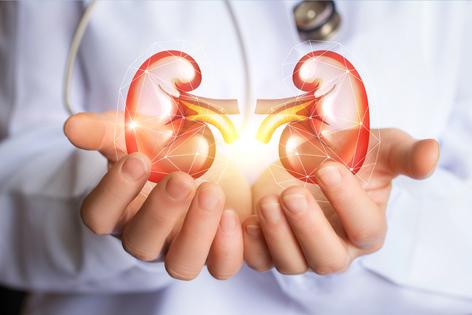Kidneys, eyes, ears, and more: Why do we have a spare?
Published in Health & Fitness
One of the many underappreciated things about the human body is that it has a lot of excess capacity. That is, our organs have more reserve than most of us will ever need.
It’s as if our bodies were designed with the idea that we might need backups in case of illness or injury. And voila: when all goes well, we arrive at birth with two kidneys, not just one!
Of course, the kidneys are not the only example. So, why are we built with natural redundancy? And which of your body parts can safely fail or be removed without impairing your health?
Why do our organs have so much reserve?
The likely answer is evolution: early humans with a genetic makeup that produced organs with functional space to spare were better able to survive, thrive, and reproduce than others without such a genetic makeup. As a result, genes associated with excess organ capacity — remember: two kidneys, not one — were more likely to be passed down to future generations.
Meanwhile, evolutionary ancestors without as much reserve may not have survived long enough to reproduce, and so weren’t as successful at passing their genes along. Over thousands of years, this power of natural selection has led to modern-day humans having organs with plenty of reserve.
Eyes, liver, lungs, and more
Here’s just a partial list of body parts with plenty of reserve:
Does this mean many parts of our bodies are truly expendable?
Maybe. If you’re only considering survival, you could view many of our body parts as expendable. Indeed, you could survive without your spleen, much of your liver, your eyes, your ears, a lung, a kidney, and other parts.
But clearly, there are factors to consider other than survival, especially quality of life. So, no one would suggest parting with even the least useful organs without a good reason.
The bottom line
It’s fortunate that our organs have so much reserve: millions of people worldwide owe their very survival to the fact that our organs have so much redundancy. And living organ donors can give up a kidney or a portion of another organ to help others live well and still be healthy.
So, even if some parts aren’t absolutely necessary, it's good to know there's so much reserve available. You never know when it might come in handy.
(Robert H. Shmerling, M.D., is a senior faculty editor and an Editorial Advisory Board member for Harvard Health Publishing.)
©2024 Harvard University. For terms of use, please see https://www.health.harvard.edu/terms-of-use. Distributed by Tribune Content Agency, LLC.







Comments